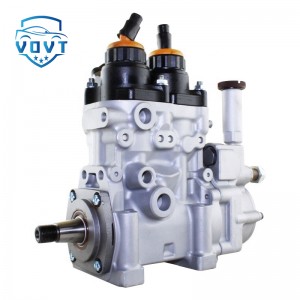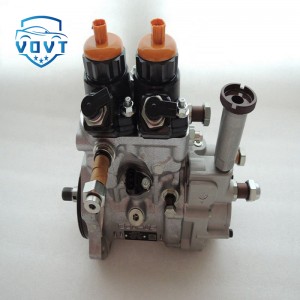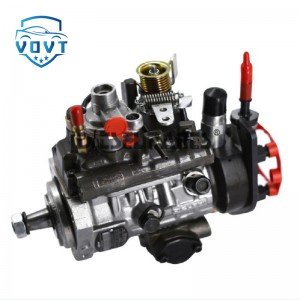Diesel Fuel Injection Pump 294000-0039 Engine Auto Engine Part
products description
| Reference Code | 294000-0039 |
| MOQ | 1 PCS |
| Certification | ISO9001 |
| Place of Origin | China |
| Packaging | Neutral packing |
| Quality Control | 100% tested before shipment |
| Lead time | 7~15 working days |
| Payment | T/T, Western Union, Money Gram, Paypal, Alipay, Wechat |
Lightweight Design and Optimization of Diesel Fuel Pump
Abstract
With the growing demand for energy efficiency and stricter emission regulations, lightweight design has become an important direction in the development of diesel engine components. The diesel fuel pump, as a high-pressure device responsible for precise fuel delivery, contributes significantly to system mass and energy consumption. This paper presents an approach for the lightweight design and optimization of a diesel fuel pump, combining structural analysis, material substitution, and optimization algorithms to ensure both reduced weight and reliable performance.
1. Introduction
Diesel fuel pumps operate under high pressure, high-frequency loading, and harsh thermal conditions. Traditional pump structures prioritize strength and durability, often at the cost of excessive weight. However, with increasing emphasis on engine efficiency and sustainability, reducing pump mass without sacrificing mechanical reliability has become a major engineering challenge. Lightweight design not only lowers component inertia but also contributes to fuel economy and reduced carbon emissions.
2. Methodology
The lightweight optimization process includes three main steps:
-
Structural analysis: Finite element analysis (FEA) was employed to identify stress concentration areas within the pump housing, plunger chamber, and valve seat. Non-critical regions with low stress levels were targeted for weight reduction.
-
Material substitution: High-strength aluminum alloys, titanium alloys, and advanced composites were considered as alternatives to traditional steels. Material selection was based on strength-to-weight ratio, fatigue resistance, and corrosion performance.
-
Topology and shape optimization: Computational optimization algorithms were used to refine structural geometry, removing unnecessary material while maintaining rigidity and load-bearing capacity.
3. Results and Discussion
The FEA results indicated that the pump housing accounted for the largest portion of total weight and offered the greatest potential for optimization. Through topology optimization, material removal from low-stress regions achieved a 15–20% weight reduction without increasing peak stress levels. Substituting steel with high-strength aluminum alloys provided an additional 12% weight reduction, though fatigue performance required surface treatments such as anodizing. For critical components such as the plunger, high-strength steels remained necessary due to extreme contact stress, but coatings were introduced to improve wear resistance.
Experimental validation showed that the optimized pump maintained its pressure delivery capacity and durability under 2000 hours of cyclic testing. Vibration analysis further confirmed that mass reduction improved dynamic stability by reducing inertial forces. However, thermal expansion differences between dissimilar materials introduced challenges that required careful tolerance design.
4. Conclusion
Lightweight design of diesel fuel pumps can be effectively achieved through structural analysis, material optimization, and computational design methods. The results demonstrate that a weight reduction of up to 30% is achievable without compromising durability or performance. This study provides a systematic approach for designing next-generation diesel pumps that balance efficiency, strength, and environmental sustainability. Future work should focus on advanced composite applications, additive manufacturing techniques, and real-time structural health monitoring to further improve lightweight designs.



























